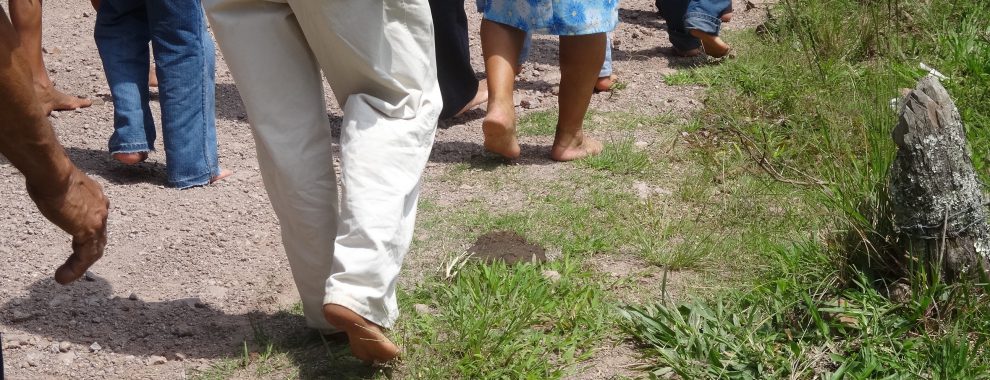Reflections for the Ascension
After Jesus ascended into heaven, his disciples were gaping at the clouds. The angels admonished them, “Why do you stand looking up to heaven?” (Acts 1:11).
Just forty days beforehand, angels had asked the women who had come to the tomb of Jesus, “Why do you seek the living among the dead?” (Luke 24:5)
In 2004, while visiting the Holy Land, I took a day walking in Jerusalem – from the Temple Mount, the Dome of the Rock, I walked the Via Crucis, the Way of the Cross, to the Church of the Holy Sepulchre.
As I entered the tomb, I found two women there. (Isn’t that interesting – and biblical?) One was a Catholic sister who left after some time in prayer; the other was an Orthodox woman, praying in a low voice, bowing frequently while making numerous signs of the cross.


All of a sudden, I had a revelation, recalling other words of the angels, “He is risen; He is not here.”
After I left the tomb, I went back to Bethlehem where I was staying with a friend. I was the only non-Palestinian on the bus.
As I look back, I recall that as I walked the Via Crucis I saw people going about their daily lives – a father walking with his son, Israeli soldiers patrolling, shopkeepers displaying their wares. On the bus I encountered a friendly man who helped me get back to Bethlehem, despite our differences of language and religion.

Jesus walked with me that day – and still walks with me – in many different ways.
Do we look for God in the wrong places? Do we think that he is contained in a tomb – or, even, in our church buildings?
I read of many people, here in Honduras as well as in the US, who are clamoring to open the churches.
I understand the longing to celebrate the Eucharist in community; I’ve only been in one Mass in more than two months. I’ve been in only two other Celebrations of the Word, where I presided over two funerals. I’ve only watched one complete live-streamed Mass, the ordination to the priesthood of a friend in Iowa. But, for me, these are not community participations in the Eucharist.
But God has graced me with time to pray, to read, to reflect on my life.
Being blessed with internet I have been able to connect with friends in several parts of the world – by Skype and Zoom. I have also participated in a few zoom sessions with other folks on a variety of topics. (What was surprising was finding people I know on the same Zoom sessions.)
I’ve also been writing a bit – not just for my blogs but also on a few projects. I’m trying to write something more on celibate deacons, since there is almost nothing available. I am also trying to write a longer work on my vocation as a deacon; my path to the diaconate is very different from most permanent deacons and, therefore, my vision of the diaconate is rather unique.
Two weeks ago, I decided to find a few ways to use this time for some ongoing formation. Since I need a refresher, I’m taking ten hours of classes in Spanish by internet. I am also taking a four week diplomado (a certificate program) with CEPROME of the Mexican Pontifical University on Prevention of Domestic Abuse. Abuse is a real problem here in Honduras and I think it’s important to be prepared to respond.
Twice I went out with local municipality workers to deliver bag of food and soap products to people in the villages, driving with a loaded pickup and several of the workers. Over 1600 households got bags. There may be a third distribution in a few weeks.

Though I have served as a deacon at Mass only once, I presume (and, thus, may be presumptuous) that I am trying to live out my vocation in a different way.
I wish I could get out more – but we are restricted to once every two weeks.
I am asking for a letter from the mayor’s office that will let me get out more often. There are about twenty couples that are prepared for marriage but haven’t done the final interview which I usually do in the parish office. The pastor and I are proposing that I go out to the communities and do the interviews there. If I get permission to circulate a little more often, I’ll at least be able to get to the villages in our municipality.
I have also told the pastor and the mayor that I am available to transport people if there is any need. It’s the least I can do.
And so, where am I looking for the Lord?
In the many ways God calls me to be faithful – to glorify God and to serve the poor.





